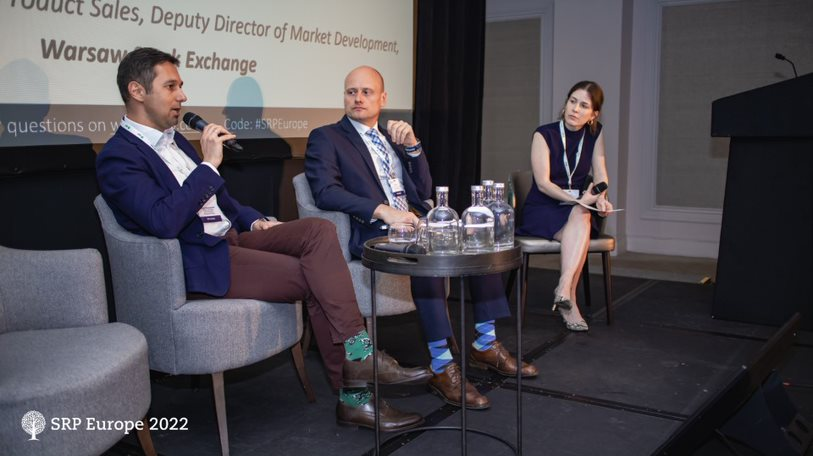The trade body wants the industry to self-regulate as local issuers refrain from issuing structured products due to regulatory concerns.
Michal Karwasiński (pictured), member of the board, Polish Council for Structured Products (Polska Rada Produktów Strukturyzowanych, or PRPS), believes that right now is a very decisive moment for the Polish structured products market.
“Polish civil law is not flexible […] in Poland, we cannot simply create a security with features that address all the demands of the construction of structured products,” said Karwasiński, speaking at the SRP Europe 2022 conference in London on 23 March.
The vast majority of structured products in Poland are issued by foreign investment banks - Michal Karwasiński, PRPS
Although Poland is one of very few European countries with hardly any restrictions or specific regulations concerning the distribution of structured products, the Polish financial supervision authority is currently thoroughly analysing the growing structured products market, which it perceives as a systemic risk factor.
“As a result, the vast majority of structured products in Poland are issued by foreign investment banks. These structured products are governed by foreign law, which is also perceived as an additional risk factor,” said Karwasiński.
The regulator has asked the PRPS to prepare an analysis of the regulatory framework for the distribution of structured products in five of the biggest markets in Europe: Switzerland, Germany, France, Italy, and Belgium.
“We provided such an analysis and in each of these markets there are specific rules, specific restrictions to distribute structured products,” said Karwasiński.
The big concern is that the Polish financial supervision authority and the Minister of Finance want to do the same in Poland to make the market more sustainable whereas the PRPS is keen to follow the Germany route.
“In Germany, issuers are very active in terms of self-regulation,” said Karwasiński.
“They provide the regulator with industry made regulations and they try to convince the supervisor that this is enough. That is the best way to regulate this market and to make this development sustainable,” he said.
Karwasiński wants the industry to do exactly the same in Poland and believes now is the moment to do so.
“If you wait one or two more years, it might occur that this regulation will be too rigorous and especially for retail investors who are interested in products without capital protection, which are more complex, it will not be possible to sell them in Poland,” said Karwasiński, adding that the PRPS is welcoming all issuers and Polish distributors to join the discussion on how to regulate the market and how to meet all the criteria or the interest of the market participants.
“We need to do work in the area of distribution to give comfort to all authorities that even structured products that are governed by foreign law are still distributed in a safe way to Polish investors,” he said.
The regulatory landscape is of the utmost importance to get the market to the next level, added Filip Duszczyk, head of product sales, deputy director of market development, Warsaw Stock Exchange (WSE).
“Once the regulation is in place, you can start growing the institutional side, the market makers,” he said.
Like many other markets in the past few years, the Polish structured products market has had to deal with low interest rates, making it increasingly difficult to structure (partially) capital products, which have seen sales volumes decline by more than 70% in the past five years.
At the same time, high volatility meant that the listed structured products on the Warsaw Stock Exchange (WSE), and especially the turbo certificates, have gone from strength to strength, registering a turnover of €680m (PLN3.1 billion) in 2021 – an increase of more than 200% since 2017.
“This segment growing, and of course, with increased volatility, the majority of the products that are trading are leverage products, but we are definitely seeing an increased interest in investment products with full or partial capital protection,” said Duszczyk.
Polish investors are generally traditional in terms of risk aversion, and they often tend to lean towards products that are deemed ‘saver’.
“Capital protected products are mainly distributed via the networks of local banks and we are seeing some really high-net worth clients coming in, taking up positions of up to €3 million in their portfolio,” Duszczyk said.
The WSE is working hard to attract more issuers and although some of the bigger issuers are present already, the exchange is yet to see local issuers, which is mainly due to regulatory issues, according to Duszczyk.

